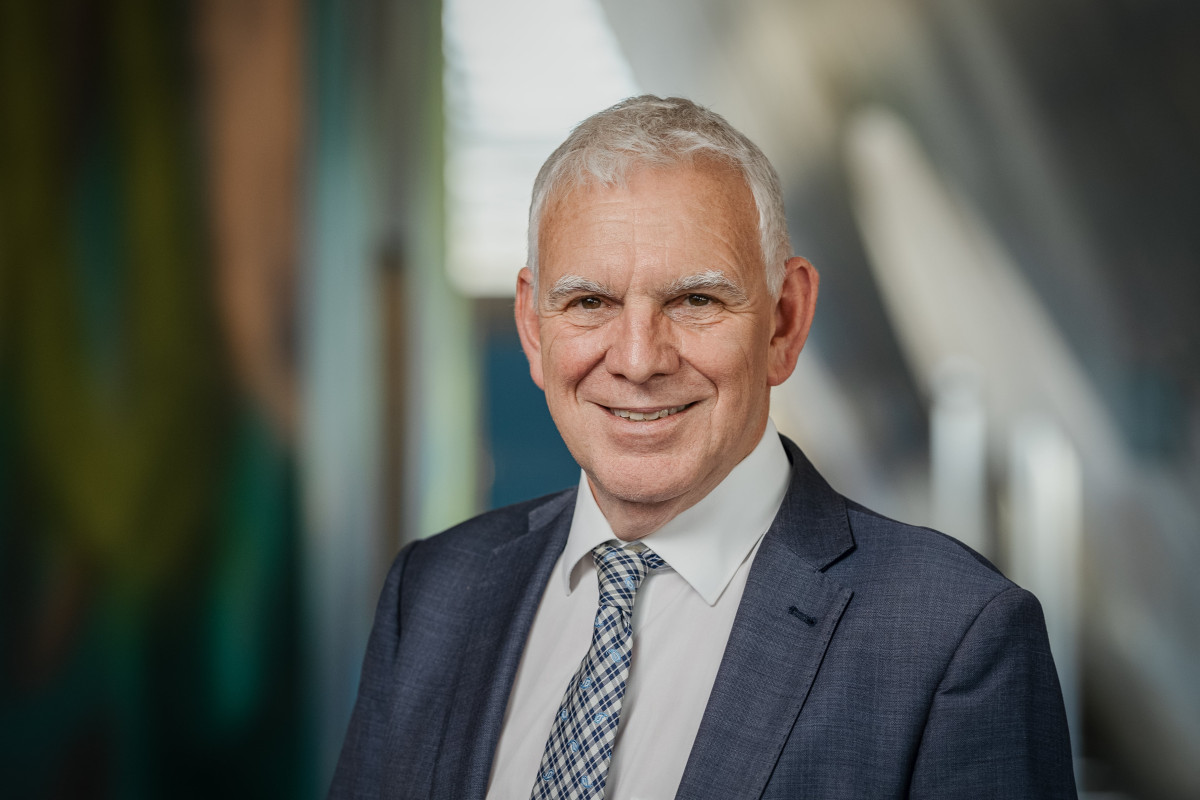EU should deepen climate cooperation with China amid waning US engagement – German official

Clean Energy Wire: From this week, Germany will be hosting the Bonn Climate Change Conference, which is to prepare for the COP30 negotiations in Brazil in November. The tense geopolitical situation and difficult times for multilateralism are also having an impact on climate policy: Priorities are shifting, often towards security policy and defence policy. The US is currently withdrawing from the Paris Agreement. How can the international process for climate action be kept going?
Jochen Flasbarth: The UN Climate Change Conference in Bonn is taking place against a difficult geopolitical backdrop. International cooperation is not getting any easier. In some areas, it is currently being put to the test. In trade, for example. This makes it all the more important to utilise and further strengthen the existing international channels of negotiation that enable the international community to act together. The Paris Climate Agreement and the UN Climate Secretariat are such strong platforms for multilateral cooperation that we so urgently need.
And exactly there, we will discuss with our colleagues in other countries how we can move forward and push for more climate action. Especially as we now enter the very crucial decade between 2025 and 2035. There are many decisions to be made in order to bring us on a global path compatible with the 1.5 degrees Celsius temperature limit.
At the same time, in the energy sector we can see the right development. The global energy transition is in full swing, striving for a growth path, including in the US. The majority of all investments in new energy capacities worldwide are now flowing into renewable energies: wind, solar, battery storage, among others. Current figures from the IEA are marking a turning point; we are on the cusp of an era of climate-friendly, renewable energies, despite all attempts to reverse this trend.
We can see that in many EU member states, or countries like Kenya and New Zealand, where significantly more than half of the electricity comes from renewable sources. In Kenya, this figure is already 90 percent. In Germany, we have already moved beyond a 50 percent share of renewable electricity.
Climate action has become an economic issue, and Europe is competing with China or the US on green technologies. Is it more difficult to reach an agreement on climate action at the international level when trade policy issues or competition are at stake at the same time?
If governments like the US administration choose to ignore the climate crisis, they naturally come to completely different economic conclusions than we do. I emphasise that this is the federal US administration, as many US states are coming to similar conclusions as we are.
The less the US is engaged in international climate action, the more important the role of China becomes. China sees climate change as the biggest barrier to the development of the global economy in this century, as a threat to prosperity. A large part – if not the largest part – of the global economy in this century will be shaped by China, so the country is highly motivated to participate.
There are many things that separate us from China, especially in terms of social policy and the state model, but when it comes to protecting global public goods or climate action, we are closer to each other. This is our starting point for common action, but also for competition on possible solutions.
Competition for a climate-neutral future makes negotiations, such as those at the COP, more complex, but it also creates completely new business relationships. The old fossil fuel world has ultimately made a few countries beneficiaries of the global division of labour. There will be many more countries benefitting now and in the future of the new age of renewables.
I would like to see the US administration show international solidarity and a commitment to climate action. But it is what it is, and yes: this creates opportunities for the EU.
What can Europe do to ensure successful climate negotiations?
New geopolitical risks also harbour opportunities. We in the EU have said that Africa is our partner continent, also when it comes to the climate transition. Many heads of state and government from all over Africa came together at the Africa Energy Summit in January with a lot of ambition and commitment. I was the highest-ranking representative from the EU. Twelve EU commissioners were at the World Economic Forum in Davos, but not a single one at the Africa Energy Summit in Dar es Salaam. This is the wrong attitude towards partnership because, more than before, success in climate action also requires empathy.
Can Europe benefit from the US administration’s actions?
I would like to see the US administration show international solidarity and a commitment to climate action. But it is what it is, and yes: this creates opportunities for the EU. This affects Africa, it affects our cooperation with India, it affects our cooperation with China. Many things are being reorganised and there are opportunities we should definitely not miss.
Should the EU and Germany adopt a more geostrategic stance on climate action and the associated economic issues?
Yes. We need to make sure that we forge alliances now, create new ones and strengthen or revitalise the existing ones.
For example, we should not tire of telling countries like South Africa how much we value their leadership and also emphasising certain elements even more strongly, especially given that the G20 is by far the most consequential group to keep 1.5°C in reach.
We are part of the just energy transition partnership with South Africa. The centrepiece was the restructuring of the energy industry legislation with free access to the grid for all electricity producers. Ultimately this led to the abolition of the monopoly position of the energy company Eskom. There are also close links here with the country's political elites. It has been and still is a huge task to effectively break up this monopoly.
President Cyril Ramaphosa managed to get it through both houses of parliament shortly before the elections last year. That shows there is determination, there is conviction. Something like that cannot be taken for granted and publicly recognising it can score us many points.
Let us look ahead to the climate conference in Brazil. What needs to be achieved there on issues such as financing, emissions reduction and adaptation to climate change to make COP30 a successful climate conference?
First, we need all countries to submit their new climate plans, the so-called Nationally Determined Contributions [NDCs], by September at the latest. The process takes place beforehand and COP30 must build on this. The world is not on course for 1.5 degrees Celsius. We are not even on course for two degrees. But we have to succeed.
Let me be very clear: Inaction will cost us dearly. With every centigrade of global warming, the challenges to adapt grow exponentially – risking to become unmanageable. It will endanger our welfare and hinder sustainable development in the world.
Secondly, climate finance will play a major role. We need to work on how we organise the path to 2035. We agreed the new and very ambitious climate finance target in Baku: 300 billion dollars will have to be mobilised annually by 2035.
However, the much more important figure is the 1.3 trillion dollars by 2035. These are not state funds, but all funds that will be used to get on track for climate action in developing countries. Most of the transformation will have to be driven by private investment. The question at COP30 in Brazil– but already also in Bonn – will therefore be how the new goal will be achieved. We also see a role for richer developing countries to join in more broadly through South-South cooperation.
Ultimately, we did not make any progress on adaptation at the previous climate conference in Baku. However, this is the issue that worries many partner countries the most. And finally, the COP30 venue – the Amazon region – demands that we make even better progress in linking primary forest protection, sustainable forest use, biodiversity and climate action. This will be an important issue outside the official negotiations.
Now that the US is leaving the process, the EU and China are the two major economies from which the decisive drive must come. It is therefore important that we Europeans take action and seek close dialogue with China, because it will not be possible to achieve this without China.
The deadline for the new NDCs has already passed and only a few countries have presented new climate plans so far. Will key plans still be presented before COP30?
It is not the first time that we have managed to pull things together just before the deadline. The EU will play a major role. Agreeing our NDC, that needs to be derived from the 2040 EU climate target, is not just a European issue. It has great international influence. China will also play a major role. Now that the US is leaving the process, the EU and China are the two major economies from which the decisive drive must come.
It is therefore important that we Europeans take action and seek close dialogue with China, because it will not be possible to achieve this without China.
Do you believe that the European NDC will be adopted before the COP?
It must be.
The EU NDC is closely linked to the planned emissions reduction target for 2040. Will the 2040 target also be adopted before the COP?
Yes. It is imperative that the EU NDC is derived from the EU 2040 climate target. This will now be a major task for the Danish EU Council presidency from 1 July. We are in close dialogue with the team, as well as with the current Polish Council presidency. Environment minister Carsten Schneider made his first trip abroad to Warsaw. That was an important signal.
It will now be very important to build bridges and find out what will enable all member states to join us in making greater efforts to protect the climate and build a prosperous climate neutral EU economy for all by 2050.
Who is now the European driving force behind the international climate negotiations in this complex political situation?
This can only succeed if we all work together. Germany's role is not to be a whip for climate action, but this government's coalition agreement puts us in a good position to be among those fighting for committed climate action in the EU.
Germany has decided to implement climate policy and the nuclear phase-out simultaneously. Do you see this as a problem in talks with countries in Europe to find a common position, but then also with international partners?
We will not be able to stop other countries from developing nuclear energy. What is important to us is that we do not pay for it – and that we can decide on the most efficient and sustainable energy transition.
With nuclear power plants you can see: costs are exploding everywhere, and small modular reactors are certainly not a proven success story. That is the discussion we are having at EU level and we have a clear stance on this. We will not dictate to France, Belgium or the others which power plants they should build or keep active. Of course, we will continue to watch the safety issues carefully, especially at plants near the German border.

